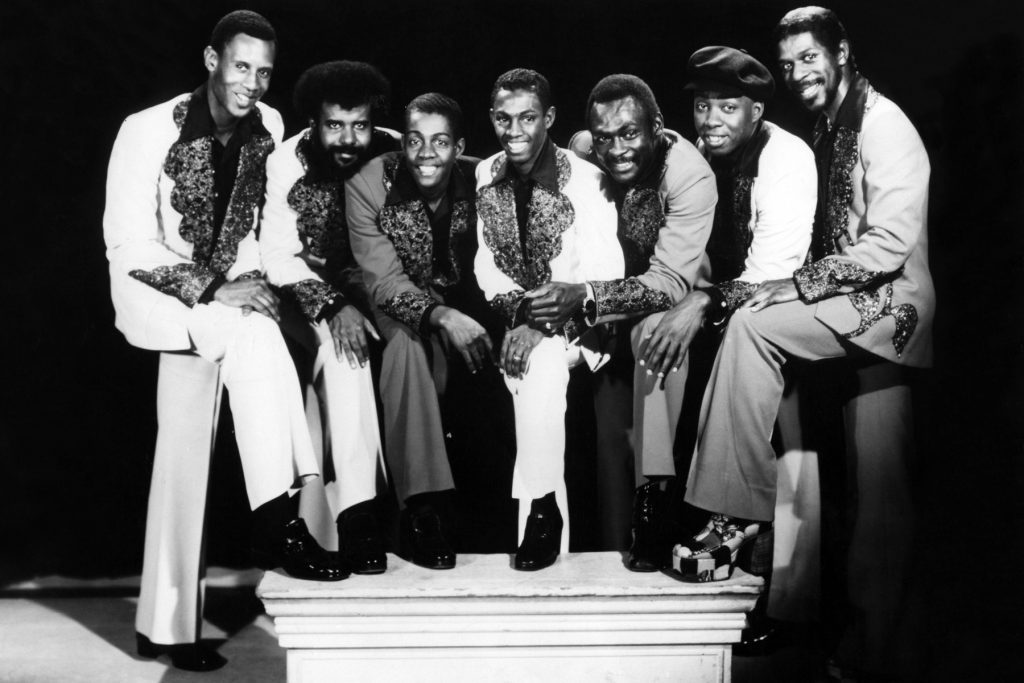
How Sarah Shook Found Their Identity and Made a Surprisingly Hopeful New Album
It’s been long enough since Sarah Shook & the Disarmers first cut the tracks for their new album Nightroamer that they’ve had to re-learn how to play them. Recorded just a hair ahead of the pandemic in 2020, the album’s release was delayed until last week, so trying those songs out as a band after two years has put their collective memory to the test.
“It definitely feels new in the sense that we’ve been rehearsing this week,” Shook says, laughing, “and it’s just like, ‘Oh my God. I forgot about that. Forgot about this.’ Some of the songs are really old.”
Much has happened in the four-year gap since Shook and the Disarmers put out their second album Years, a cathartic blast of country-punk that examined toxic relationships and mental health. On top of general pandemic chaos, Shook had to find a new label home at Thirty Tigers amid disputes with Bloodshot Records. Then in 2020, Shook came out as non-binary and now uses they/them pronouns.
“Maybe four or five years ago was the first time I met somebody that used ‘they/them’,” Shook says. “It was a huge relief for me to realize that like, this is a thing. I’m not making this up in my brain. It was very, very liberating.”
blogherads.adq.push(function () {
blogherads
.defineSlot( ‘medrec’, ‘gpt-dsk-tab-country-article-inbody1-uid0’ )
.setTargeting( ‘pos’, [“mid-article”,”mid”,”in-article1″,”btf”] )
.setSubAdUnitPath(“music//country//article//inbody1”)
.addSize([[300,250],[620,350],[2,2],[3,3],[2,4],[4,2]])
;
});
A sense of that liberation permeates Nightroamer, both in terms of its musicality and Shook’s lyrical content. The album’s 10 tracks are still centered around Shook’s economical melodies and unfussy vocal delivery, but the band — Eric Peterson, Aaron Oliva, and Jack Foster; steel player Adam Kurtz joins them on the road — frequently pull the songs in surprising stylistic directions that veer off from the agitated honky-tonk that informed their 2017 album Sidelong and much of Years.
“There are times that that I’ll bring a song to the band, and I’m like, ‘This is going to be like a country song.’ Then, as we’re playing it together, it becomes very clear that the song wants to be something else,” Shook says. “It wants to be more rock & roll, or it wants to be more pop.”
New songs like “Been Lovin’ You Too Long” and “I Got This” have a taut, post-punk edge with unusual chord changes and riffs that emphasize rhythmic interplay. “I Got This” comes with extra percussion, thanks to producer Pete Anderson’s suggestion they record the sound of a drumstick clattering around in a metal bucket. Shook actually brought both songs to the Disarmers in the band’s final rehearsal before they left to go record.
“We finished early and it was just a great session,” they say. “Everybody was in great spirits and the guys were just like, ‘Well, do you have anything else that we could just blow through real quick just for the for the heck of it?’ And I was like, ‘Well, I’ve got a couple of songs I just wrote.’”
It’s an ongoing challenge for Shook to decide which songs they write will be for the Disarmers and which ones will be reserved for something else. In this extended period between albums and with less touring, Shook has also been working on songs for a solo album set to come out later in 2022, which they say will involve “a lot more indie rock, pop stuff. Definitely some grunge and some new wave.”
Nightroamer displays a similarly wide-ranging set of influences. “No Mistakes,” which Shook says dates back to 2009, is Waylon Jennings-style disco-country boogie, while the jangly “Stranger” has some Britpop in its lively bounce. The revved-up lead single “Talkin’ to Myself” is sinewy grunge-rock that’s sure to hit hard in a live setting. Meanwhile, “If It’s Poison,” which employs a waltz-time early R&B rhythm and an impassioned vocal performance from Shook, transforms itself into dissonant wash of guitar squall.
“If It’s Poison’ is hands down, my favorite song on the record,” Shook says. “It’s also my favorite song to play live, and it really gives [guitarist] Eric a chance to play with his fuzz pedal.”
blogherads.adq.push(function () {
blogherads
.defineSlot( ‘medrec’, ‘gpt-dsk-tab-country-article-inbody2-uid1’ )
.setTargeting( ‘pos’, [“mid-article”,”mid”,”in-article2″,”btf”] )
.setSubAdUnitPath(“music//country//article//inbody2”)
.addSize([[300,250],[300,251],[620,350],[2,4],[4,2]])
.setLazyLoadMultiplier(2)
;
});
Along with most of the other songs on Nightroamer, “If It’s Poison,” hints at a lighter, or at least clearer, state of mind for Shook, who previously chronicled self-destructive patterns and depression with a near-audible scowl. This time, they reckon with how to break those cycles.
“I’m emerging from the place that I was in, it’s like a metamorphosis,” they say. “It feels like it’s building on that initial, ‘OK, I need to be a little more self-aware. I need to be more objective and I need to understand why I’m choosing the things I’m choosing.’”
It wouldn’t be quite right to call it a feel-good album, but maybe it’s something like a feel-ok album. It’s the kind of pragmatic outlook that comes in handy in these trying, unpredictable days.
“It’s certainly more full of hope than anything we’ve put out before,” Shook says. “And it’s not some kind of wild, toxic positivity thing. It’s very grounded, just like very poised and self-aware and looking to the future.”




